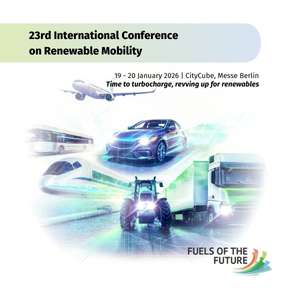Seaweed farms could become important source for biofuels production in UK, report suggests
Large-scale seaweed farms could become an important source for biofuels production in the UK, a new report by the Department for Environment, Food and Rural Affairs (Defra) suggest.
The government department recently unveiled a report entitled, Seaweed in the UK and abroad – status, products, limitations, gaps and Cefas role.
In the report, Defra stated that seaweed could be important because its aquaculture does not compete for land and freshwater with either food or non-food crops. Furthermore, seaweeds have high productivity, fast growth rates and high polysaccharide content; all important qualities for biomass for biofuels.
Defra also said that macroalgae could also represent a significant sink for anthropogenic CO2 (“Blue Carbon”), and cultivation and the harvesting of seaweeds could play an important role in carbon sequestration and reduction of greenhouse gas emissions.
Global seaweed production has more than doubled between 2000 and 2014, from 10.5 to 28.4 million tonnes. The 2012 world production of seaweeds was estimated to be about $6 billion (FAO, Food and Agriculture Organization, 2014); 95% of this production was from Asian aquaculture. In the UK, harvesting of wild seaweeds for food, feed and fertilisers has been carried out for centuries, however seaweed farming does not have a long history.
Nevertheless, in recent years, there has been increasing interest in seaweed aquaculture, mainly driven by research into algal biofuel technologies. Seaweed is also being touted as a ‘superfood’ by some celebrity chefs.
Green gold
Speaking to Biofuels International, marine biologist Craig Rose, managing director of the specialist firm Seaweed and Co., said: “There is a huge interest in seaweed across the UK as it’s local, natural and sustainable. There is huge potential for seaweed production in the UK. We have phenomenal resources and great expertise. It is just a matter of getting on and doing it.
“If we scaled up production, it could become viable for biofuels for use in cars or as a bioenergy source for electricity.”
He said the main challenge to developing the seaweed industry in the UK was getting sufficient value from the feedstock at the right price.
However, Rose added: “Scotland is well placed to cultivate seaweed as it has natural resources. It has a great coastline. It also has the expertise for it. Scotland has a very strong food and drink industry and energy industry. It ticks all the mega-trends. Northern Ireland and Wales are also looking at seaweed production, but not so much in England.
“So many people just see seaweed as green stuff on the beach.”
‘Promote subsidies’
Rose told Biofuels International that the UK government needed to promote subsidies for the seaweed industry in order for it to grow.
He said a positive of the Brexit vote was that Britain could focus on developing its own seaweed industry. However, he did also note that EU funds for research could be cut due to the Brexit vote and was already seeing a lack of interest from the EU to invest in UK R&D.
Rose explained: “The biofuels industry will continue to evolve with the low volume, high value industries. Seaweed fits into all of them. However, seaweed used for biofuels production is still a long way away, perhaps 5-10 years away.
“Nevertheless, this is definitely going to happen in the future. Projects are happening but they are very much at research stage.”
This story was written by Liz Gyekye, editor of Biofuels International.











